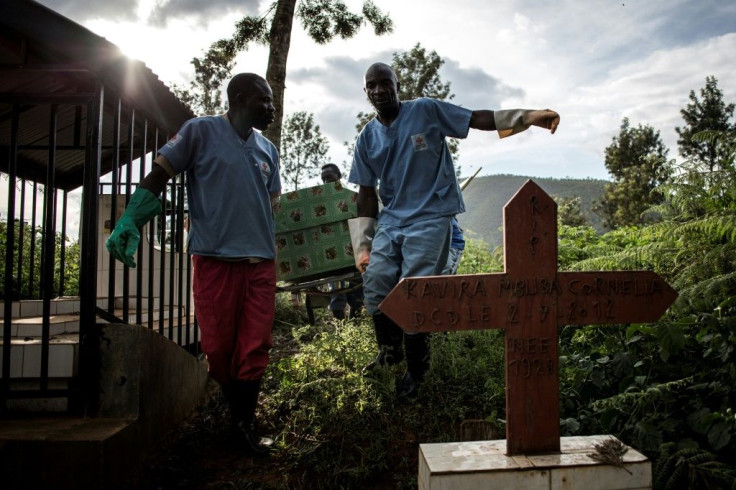DR Congo unveils new government after months-long delay

Nearly eight months after former opposition chief Felix Tshisekedi was elected president, the Democratic Republic of Congo on Monday unveiled a coalition government dominated by supporters of his predecessor, Joseph Kabila.
"The government is finally here. The president has signed the decree and we will begin work soon," Prime Minister Sylvestre Ilunga told reporters.
In gestation for seven months, the new government will see most of the 66 portfolios handed to Kabila's Common Front for Congo (FCC), with Tshisekedi's Direction For Change alliance accounting for most of the rest.
Tshisekedi, 56, has vowed to enact sweeping reform and root out corruption but has been hampered by the need to share power with the legislature, which is dominated by FCC MPs.
Forging the coalition government took time as both sides had to "remove everything that could be an obstacle to the functioning of the government," Ilunga said.
The new team will get down to work as soon as its members are approved by the National Assembly, he added. The parliament has been convened in special session until September 7 to approve the government.
"I believe this has been worth waiting for," Ilunga said.
"Here we have a government that manifests the vision of the head of state, in the direction of change. So change starts now. Let's get to work!"
Female foreign minister
Ilunga said 17 percent of government positions were now occupied by women.
"This percentage is still low but it is balanced by the importance of the portfolios attributed to women," he argued.
The foreign ministry was handed to Marie Tumba Nzeza, a member of Tshisekedi's Union for Democracy and Social Progress (UDPS).
She becomes only the second female foreign minister in the country's history. The first was Ekila Liyonda, who briefly served in the 1980s under former dictator Mobutu Sese Seko, who had renamed the country Zaire.
Women have also been named in charge of the employment ministry and ministry for gender affairs.
The new government also includes a female vice prime minister from Kabila's party, Elysee Munembe, who takes the planning portfolio, Ilunga said. There are five vice prime ministers in all.
The defence ministry went to Aime Ngoy Mukena, a close Kabila supporter and the finance portfolio to another Kabila-era veteran, Jose Sele Yalaghuli.
The interior ministry was attributed to Gilbert Kankonde, a pro-Tshisekedi figure from UDPS ranks, who will face the thorny task of dealing with future protests.
Ilunga declared that three-quarters of members were serving in government for the first time, which he regarded as the "most important innovation."
Tshisekedi emerged victorious in elections on December 30 that marked the DRC's first peaceful transition of power since the mineral-rich nation gained independence from Belgium in 1960.
Poverty, instability
But the unstable country's politics remain overshadowed by Kabila, who despite stepping down voluntarily wields extensive clout after 18 years in power.
He came to office in January 2001, less than two weeks after the assassination of his father, Laurent Kabila, while the armies of at least six regional nations waged war on Congolese soil.
Swathes of the eastern provinces are still unstable, a haven for rebel militias regularly accused of atrocities against civilians.
Moreover, an Ebola epidemic has claimed almost 2,000 lives in one year in the troubled provinces of North and South Kivu, presenting a gruelling challenge for the incoming health minister, Eteni Longondo.
Despite cobalt, copper, diamonds and other natural treasure, the DRC ranks just 176th out of 189 countries on the UN's Human Development Index. Poverty is widespread, and inequality is glaring.
Another hot potato has landed in the lap of the minister in charge of primary education, Willy Bakonga.
He has to implement a plan to make state schools free from September 2 -- a scheme announced by the outgoing minister only on Saturday and at a cost of some $2.6 billion (2.3 billion euros), roughly half the government's entire budget.
The Kinshasa press reacted cautiously to the new government, with many commentators saying they would judge it first on its action on corruption, nepotism and waste.
"The task consists of transcribing the slogan 'The People First' into acts," said the daily Forum des As.
The United States was among the first foreign powers to pledge its support. US Ambassador Mike Hammer, who has steadfastly backed Tshisekedi, tweeted, "We are ready to work with the new government to advance the special US-DRC partnership for peace and prosperity."
© Copyright AFP 2024. All rights reserved.





















